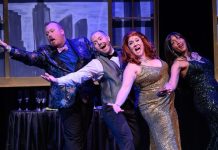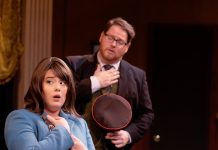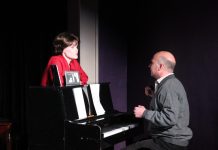Christopher Durang’s Vanya and Sonia and Masha and Spike, which won the Tony Award for Best Play in 2013, is a comedy about neurotic, middle-aged, well-off white people whining about their lives. In this it has a long pedigree, including much of Woody Allen and all of Neil Simon; the play actually quotes the latter, making liberal use of a character from California Suite.
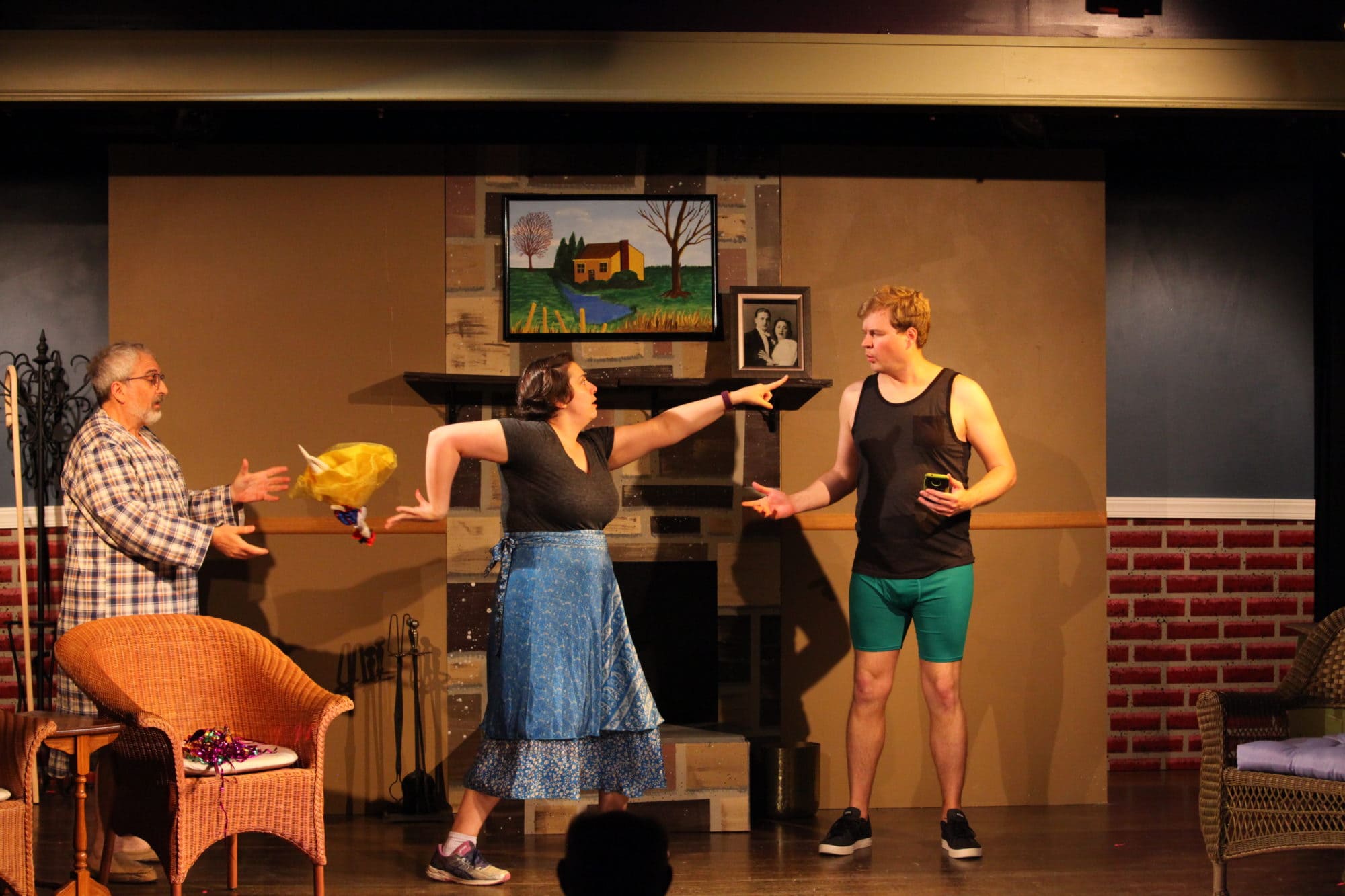
But Durang’s play has higher-brow pretentions, because it is also a parody of sorts of the work of Anton Chekhov, one of the fathers of early modernism in theater. Durang himself has said he took Chekhovian characters and tropes and put them in a blender. The three siblings (not sisters; see what he did there?) were named after Chekhov characters by their community-theater-loving professor parents, and are constantly getting into fights about whether a dozen or so cherry trees constitute an orchard, and — in one of the show’s funniest repeated bits — a character keeps squawking mournfully that “I am a wild turkey!” instead of a seagull.
The basic plot, in fact, is pulled directly from The Seagull, with a self-absorbed actress swooping in with her lover and threatening to sell the country house out from under her sad-sack relations. But whereas the original Chekhov tragedies used detail to reveal the characters’ desperation in subtext, in Durang’s version they have a habit of proclaiming their feelings, saying, “That makes me sad!” and “You’re giving her all the sympathy, give me some!” At times, it makes for genuine comedy, as when Sonia is crying because she has never lived and Masha starts crying because her life is over, and suggests, after a pause, “Let’s cry some more!” But often it comes across as clunky. They speak in stilted style, which, while probably designed to evoke Chekhov, actually produces the opposite effect. The characters seem one-dimensional — Vanya is repressed, Sonia is depressed, Masha is insecure, Spike is narcissistic, and Nina is sweet. Perhaps they’re all meant as parodies, but they come across as flat.
The best parts of the play are the bits that have nothing to do with Chekhov. Cassandra (the delightful Jenny Gleason), a cursed Sybil lifted straight out of Greek tragedy, is a whirling dervish of loony, comic energy, alternating between crazed pronouncements of doom and dry wisecracks at a moment’s notice. Spike (Ray Essick), Masha’s dim toy-boy, hysterically steals a scene doing a “reverse striptease.” Masha (Karen Winokur) invites everyone to a costume party, as long as they come as sidekicks to her ill-fitting Snow White costume so as not to outshine her, which her put-upon sister Sonia (Carol Delisle) promptly does, by dressing up as a sequined Wicked Queen and charmingly hogging the limelight. (The costumes by Stephanie Yee are expressive throughout, especially in the glamorous change for Sonia. The set, the screened-in porch of a lake house, is by Bill Kassey.)
The characters were originated by actors of the caliber of David Hyde Pierce and Sigourney Weaver, and most of the comedy of the piece must come from the actors’ delivery. As directed by Bruce Hirsch, the actors in this production make the most of their parts. Alex Guyker plays the young actress Nina as amusingly over-earnest and loopy, but her affection for “Uncle Vanya” seems genuine. Karen Winokur as Masha has her work cut out for her to win the audience over to a preening movie star who goes around demanding attention and announcing how old everything makes her feel, but she manages by the end.
Dave Gross as Vanya creates some delightful moments simply through his facial expressions, and he undertakes the play’s most demanding monologue, a tirade about how “WE USED TO LICK STAMPS!” He goes on at great length and detail about the experience of watching television in the 50s and how boring it was (“in retrospect, they seem medicated!”), but at least it was a shared experience. Gross and the playwright combine to make the character of Vanya seem much older than the late 50s he claims to be, but he earns the audience’s sympathy. The most moving portrayal is Carol Delisle’s Sonia. We get to watch her blossom and start to live as she pretends to be someone else for once in her life, and she is very touching.
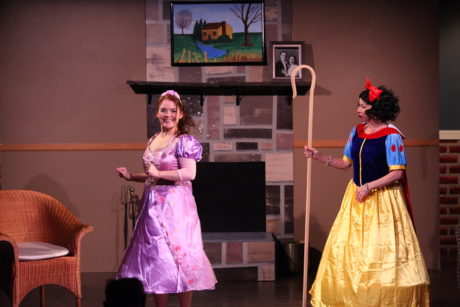
All in all, strangely for such a recent piece, Vanya and Sonia and Masha and Spike feels much older than it is, just as the characters feel older than they are. In its idyllic country setting, its stock characters, its shout-outs to Chekhov and especially its resemblance to its 20th-century forebears, it seems heir to a long, tried-and-true comic tradition. It is up to the actors to bring a new lease of life into the old family property, and this cast, under Hirsch’s capable direction, is up to the task.
Running Time: Approximately 2 hours and 30 minutes with one 15-minute intermission.
Sandy Spring Theatre Group’s Vanya and Sonia and Masha and Spike plays through July 20, 2019, at The Arts Barn, 311 Kent Square Road, Gaithersburg, MD 20878. For tickets, call 301-258-6394, or purchase them online.


